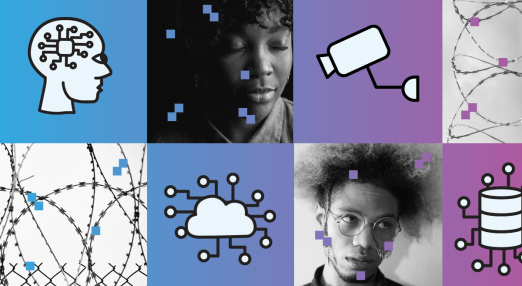Our work
EDRi is the biggest European network defending rights and freedoms online. We work to to challenge private and state actors who abuse their power to control or manipulate the public. We do so by advocating for robust and enforced laws, informing and mobilising people, promoting a healthy and accountable technology market, and building a movement of organisations and individuals committed to digital rights and freedoms in a connected world.
Filter resources
-

EDRi-gram, 7 May 2025
What has the EDRis network been up to over the past two weeks? Find out the latest digital rights news in our bi-weekly newsletter. In this edition: Apple & Meta fined for breaching DMA, civil society urges EU to act against Hungary’s pride ban, & more!
Read more
-

Showing your ID to get online might become a reality – a closer look at the EU’s new age verification app
Coming to a website near you this summer: the European Commission is close to a ‘solution’ that could force people to use their government-issued ID to get online. EDRi and EFF’s concerns about threats to everyone’s privacy and data protection, a chilling effect on access to information, and digital exclusion – harming the already most marginalised in society - remain unsolved.
Read more
-

The blanket collection of metadata on communications in the Czech Republic is illegal. Iuridicum Remedium wins data retention dispute.
The Municipal Court in Prague ruled in a dispute that lasted more than four years. EDRi member IuRe represented journalist Jan Cibulka in the case. He demanded an apology from the state for the Czech state collecting information about his whereabouts or with whom he calls and writes under the data retention regulation.
Read more
-

When technology is the problem, not the solution: Lessons from harmful consequences of techno-solutionism in digital surveillance
AI-powered surveillance systems are being deployed globally - from Israel and Russia to EU member states. These systems target marginalised communities under the guise of improving security and efficiency. To rectify these harms, we must challenge techno-solutionist narratives and rethink why and how technology is used, and center human rights.
Read more
-

Digital trade: the new frontline in the fight for our rights
The EU is signing digital trade deals that could undermine fundamental rights and block oversight of software systems shaping our lives. From data protection to algorithmic accountability, these agreements risk empowering opaque systems - used by both companies and governments - at the expense of the people most affected by them.
Read more
-

Hungary’s new biometric surveillance laws violate the AI Act
This blog post is a legal analysis of new legislation in Hungary that uses facial recognition technology in a manner that violates the EU Artificial Intelligence Act. Such use of this technology risks discouraging people from exercising their fundamental rights undermining their trust in democracy.
Read more
-

Technical experts call on Commissioner Virkkunen for a seat on the table of the European Commission’s Technology Roadmap on encryption
EDRi, in a group of 39 organisations and 43 experts, published an open letter today to call for a scientific evidence-based approach to encryption. We ask for meaningful participation to safeguard cybersecurity and fundamental rights in the process.
Read more
-

‘ProtectEU’ security strategy: a step further towards a digital dystopian future
The European Commission presented an internal security strategy that would undermine digital rights and even increase security threats. We unpack what ‘ProtectEU’ means for the EU’s future digital policy, including on encryption, data retention, and border surveillance.
Read more
-

Commission slams Apple and Meta for breaching the Digital Markets Act, doesn’t stick the landing with fines
The European Commission has shown some teeth with the EU’s digital rulebook by slamming tech giants Apple and Meta with fines, and an order to stop the infringing behaviour. While we commend the strong stance, we're concerned about whether the low fines will actually lead to change of behaviour from the tech giants.
Read more
-

Civil society to European Commission: Act now to defend fundamental rights from Hungary’s Pride ban and the use of facial recognition against protesters
EDRi, along with a broad coalition of civil society organisations, demands urgent action from the European Commission on Hungary’s new law banning Pride marches and permitting the use of live facial recognition technology targeting protesters.
Read more
-

EDRi-gram, 16 April 2025
What has the EDRis network been up to over the past two weeks? Find out the latest digital rights news in our bi-weekly newsletter. In this edition: Challenging data retention regime in Poland, Ljubljana’s municipal surveillance, and more!
Read more
-

Ljubljana’s municipal surveillance: Where trust trumps data
During a Ljubljana municipal council debate on CCTV transparency, several concerning points were raised regarding the Slovenian capital's network of over 500 surveillance cameras and the methods employed to assess their effectiveness in preventing crime. The discussion revealed that the entire system relies heavily on trust in the authorities, without any substantial data to support the cameras' effectiveness or a clear rationale for their widespread deployment.
Read more
